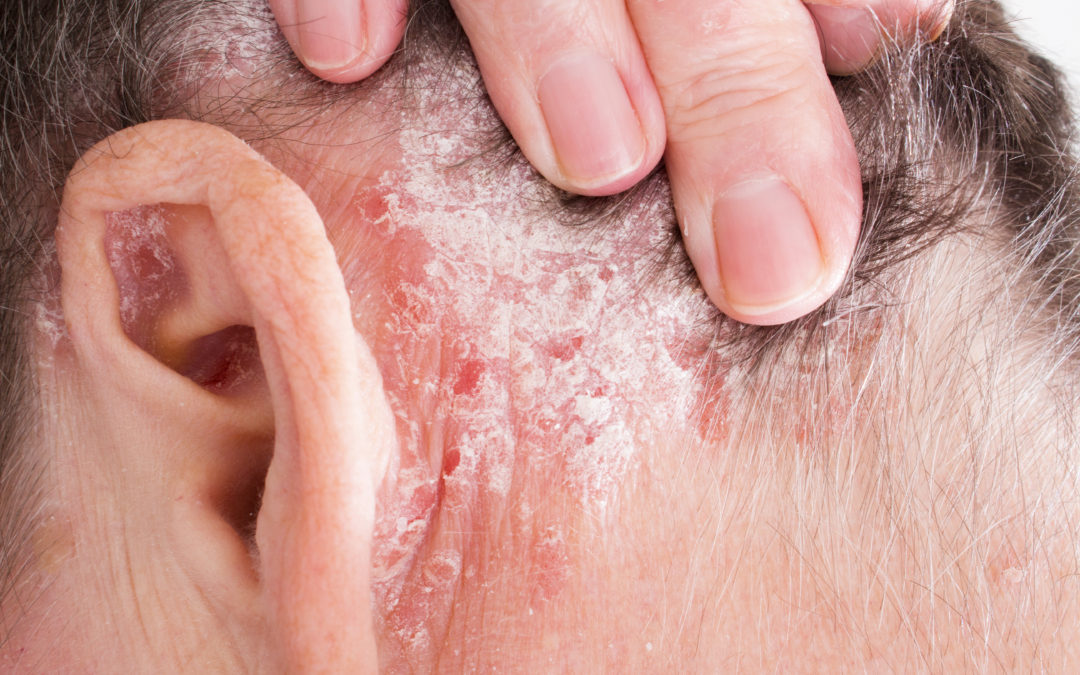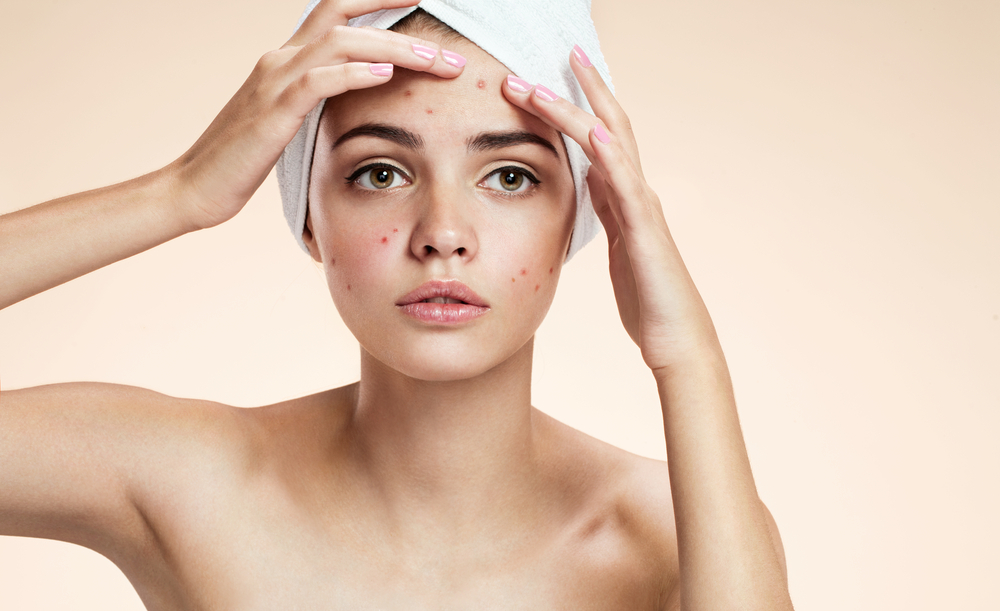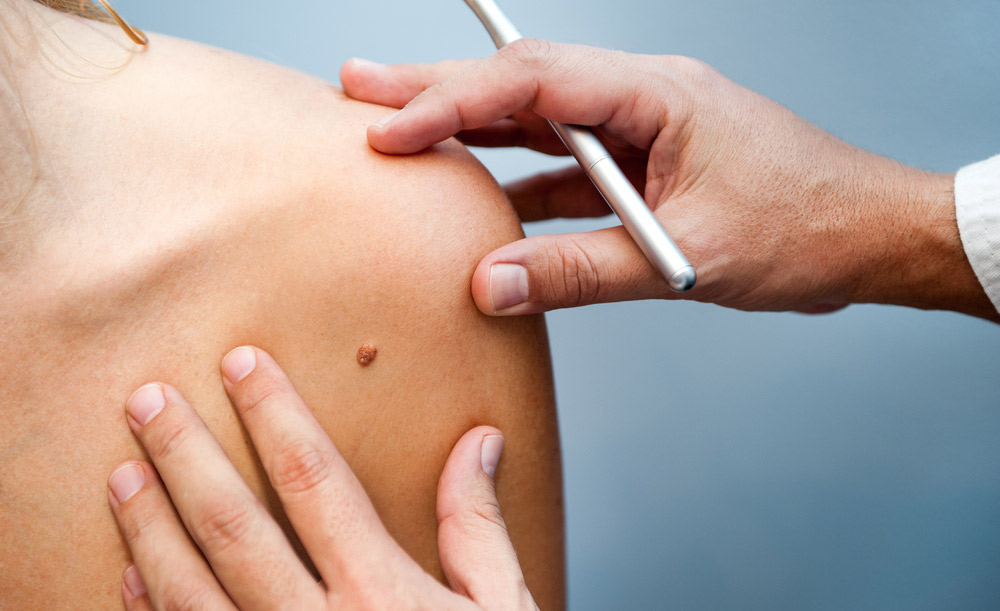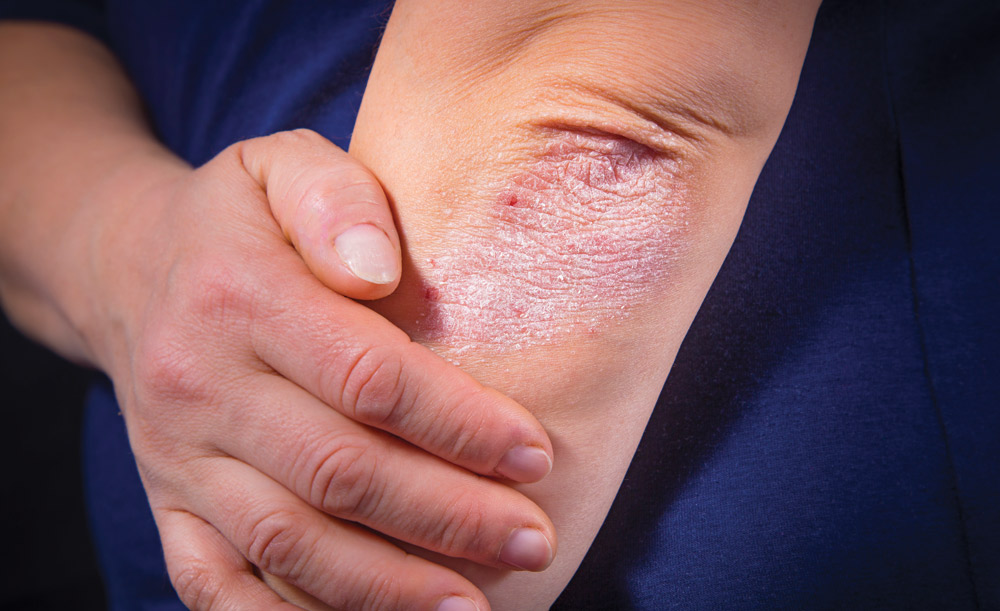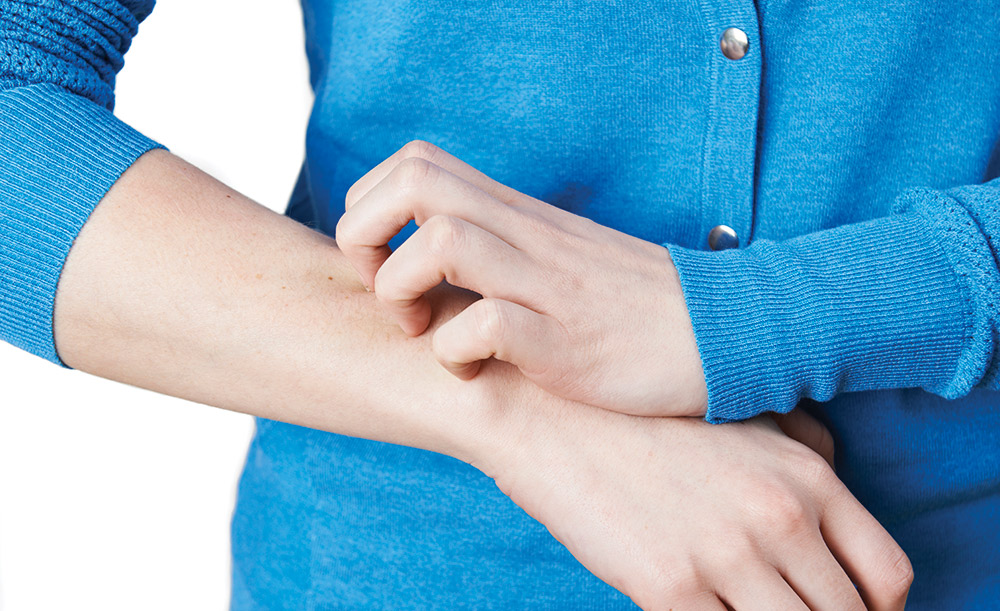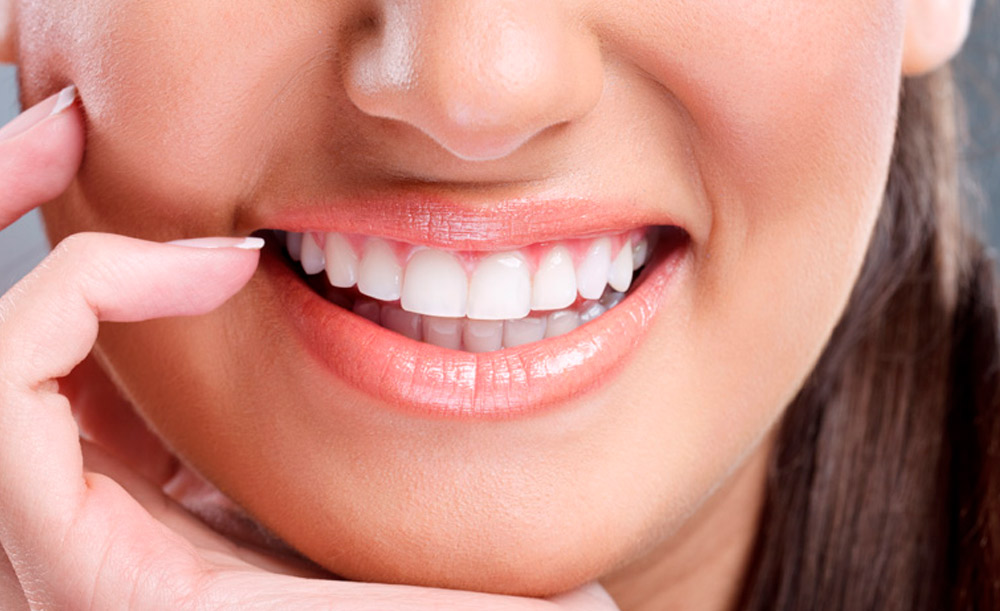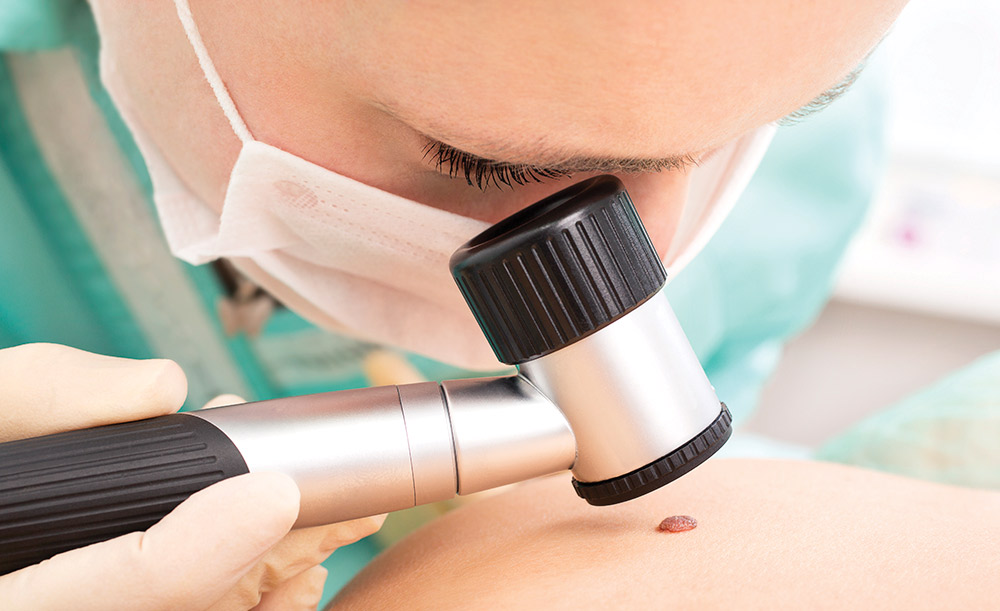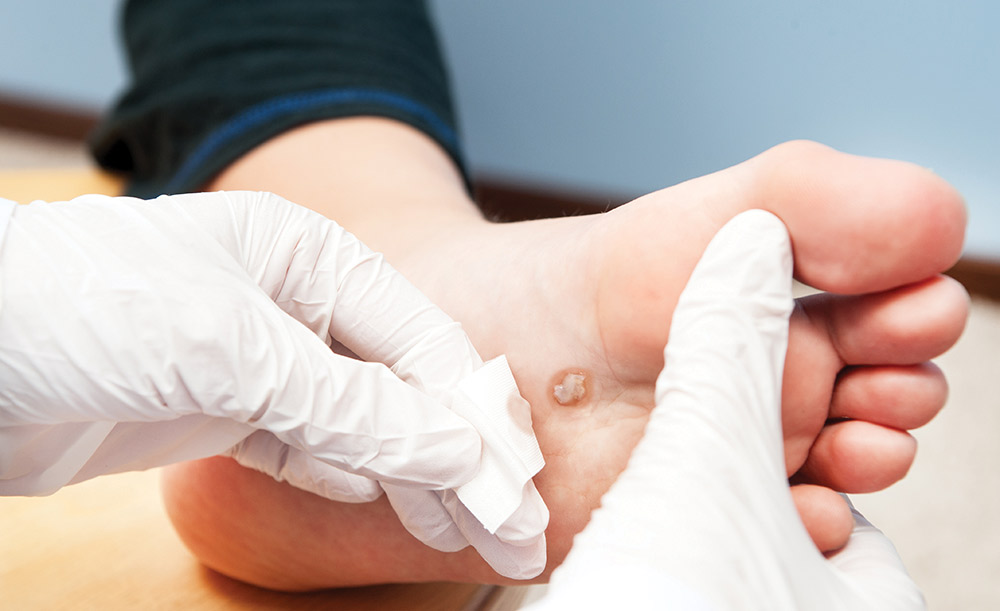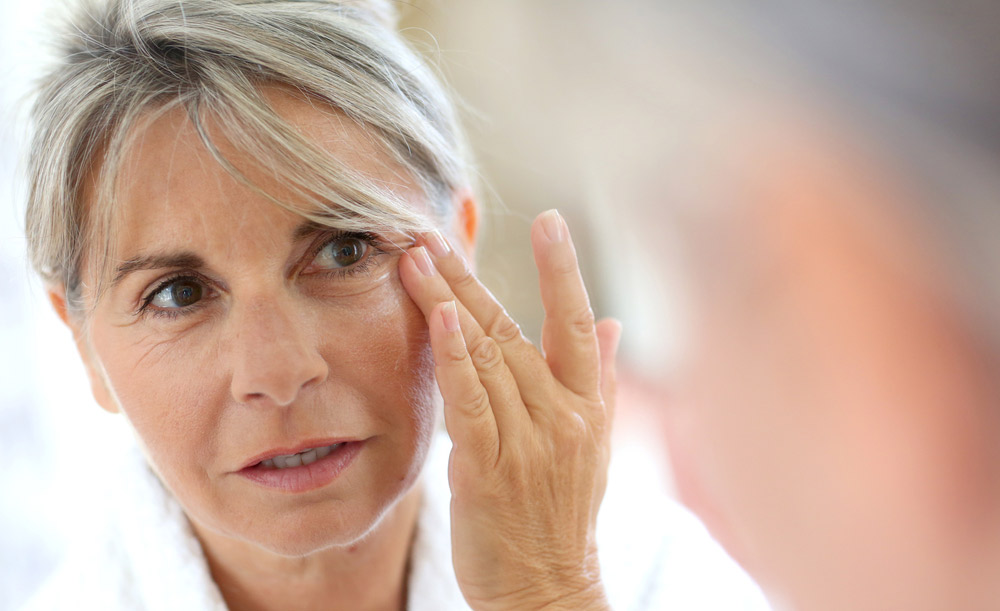Do you struggle with thick, discolored, scaly patches on your face? These can be uncomfortable and make you feel conscious. Good news, treatments for facial psoriasis are available and your condition can be managed with the help of a board-certified dermatologist like Dr. Morgana Colombo.
Psoriasis is an ongoing struggle for a number of women and men, who may feel self-conscious about the formation of patches and scales on their skin. These issues are especially frustrating when they occur on the face and cannot be readily concealed. About 50% of people who have psoriasis experience symptoms on their face.
Continue reading to learn the different treatment options that can alleviate psoriasis symptoms and restore a clear and healthy complexion.
What is Facial Psoriasis?
Facial psoriasis is a chronic skin condition in which the body generates skin cells more quickly than normal.
As a result, dead skin cells build-up on and around the eyelids, eyes, ears, and mouth and produce patches, scales, crusting, dryness, and inflammation.
How Do You Treat Psoriasis on the Face?
There are a number of medications that can be used alone or in combination with other therapies to manage facial psoriasis.
One option is low-potency corticosteroids, which are typically prescribed for only a short period of time. They can be applied to the affected area or areas in the form of an ointment, cream, lotion, or spray in an effort to minimize redness and swelling.
Vitamin D medications are also able to reduce the severity of psoriasis, as they limit the rate of cellular reproduction. They can include calcipotriene (Dovonex, Sorilux) ointment or cream or Calcitriol (Rocaltrol, Vectical).
Additionally, retinoids, such as tazarotene gel (Tazorac), aid in the removal of scales and calm inflammation.
In the event that topical treatments are ineffective, an oral medication may be prescribed.
Laser and Light-Based Treatments for Facial Psoriasis
UV-light treatments can be performed in an office-setting to help slow skin cell growth and improve the tone, texture, and clarity of skin.
Phototherapy options for facial psoriasis may include UVB phototherapy, which delivers artificial UVB rays to affected areas, narrow band UVB phototherapy, and sunlight.
An Excimer laser treatment, which targets small areas of facial psoriasis with a controlled beam of UVB light, may also be beneficial.
How Can You Stop a Psoriasis Flare Up?
Once treatment has helped to get your psoriasis under control, you may be wondering what you can to do help prevent another flare-up.
For many, managing their condition starts with lifestyle. Keeping a food journal can help to identify any foods that trigger symptoms. Common culprits are red meat, processed foods, and nightshades like potatoes, tomatoes, eggplants, and peppers. Maintaining a healthy weight through balanced diet and regular exercise can also help to keep symptoms at bay. If you have a lot of stress in your life, consider incorporating techniques like medication, yoga, or deep breathing to help manage stress.
Psoriasis on face often strikes when your skin is dry. Use a fragrance free moisturizer daily to keep your skin healthy and hydrated. Don’t forget to apply a sunscreen with an SPF of 30 or higher to prevent sunburn.
Your sensitive skin can be irritated easily, so we recommend avoiding products like harsh soaps and detergents. When cleansing, pat your skin dry instead of rubbing. If you do have a breakout, try not to scratch or pick at it as this can make it worse.
Even the most diligent patients can still experience a flare up and your doctor can help with treatments for facial psoriasis any time you need it.
How to Get Started with Facial Psoriasis Treatment
If you are suffering from facial psoriasis and want to learn more about your treatment options, please contact Integrated Dermatology of Reston today and schedule a consultation with board-certified dermatologist Dr. Morgana Colombo.

